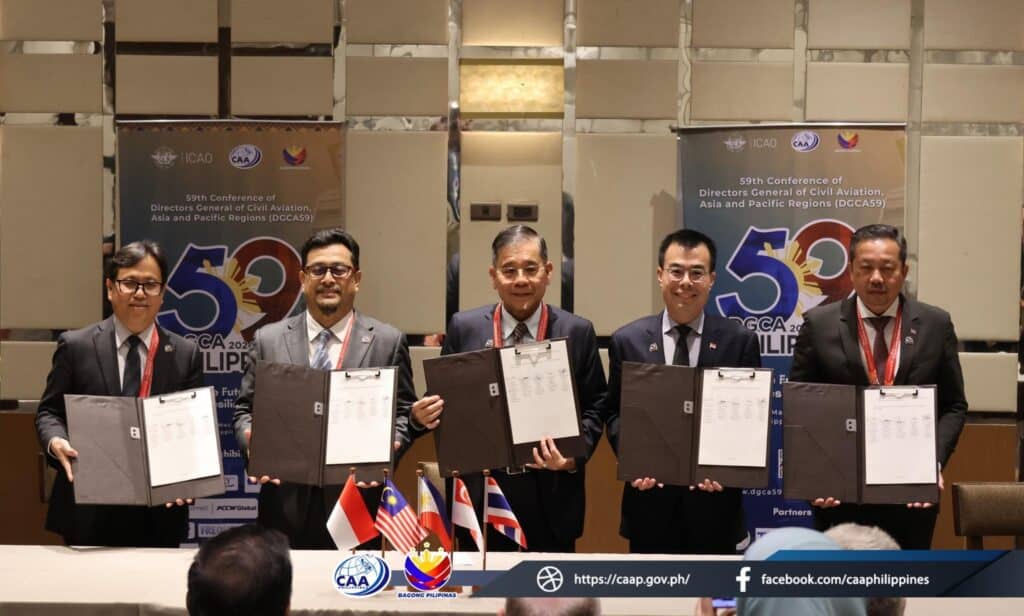PH, 4 SE Asian countries join forces to boost aviation safety

The directors general of five Southeast Asian countries signed an MOU to enhance aviation safety in their regions on October 16. | Photo from CAAP
CEBU CITY, Philippines — The Civil Aviation Authority of the Philippines (CAAP) has inked an agreement with other countries in Southeast Asian regions to enhance aviation safety in the region.
The agreement was done through a Memorandum of Understanding (MOU) formally signed on Wednesday, October 16, during the 59th Directors General of Civil Aviation (DGCA) Conference held in Lapu-Lapu City, Cebu.
The MOU was signed by CAAP director general, Captain Manuel Antonio Tamayo alongside his counterparts from Indonesia, Malaysia, Singapore, and Thailand.
According to CAAP’s press brief, the Philippines, through CAAP, the MOU indicates that the country has joined Indonesia, Malaysia, Singapore, and Thailand in Regional Aviation Safety Data and Information Sharing Initiative.
The “initiative aims to enhance CAAP’s safety management activities by leveraging de-identified safety data to identify emerging hazards, track trends, and implement measures that support the goals of the Asia-Pacific Regional Aviation Safety Plan and improve risk management.”
In this initiative, the Philippines is tasked in collecting and analyzing this data to identify regional safety trends.
READ: Asia-Pacific’s aviation experts expected in Cebu for dialogue
CAAP said that the collaboration among the Asia-Pacific regions for this initiative was first proposed at the Asia-Pacific Summit for Aviation Safety in Singapore in 2023 wherein it “reflects the Philippines’ commitment to ensuring the highest standards of aviation safety in the region.”
“The cross-border nature of aviation demands that we work together. Through this agreement, we will collectively identify emerging trends and hazards, allowing the continuous development of proactive measures that advance safety goals across the Asia-Pacific. Together, we will ensure safer skies for all,” Tamayo said.
The shared data will come from mandatory safety reporting systems and will initially concentrate on critical safety categories, such as severe turbulence and incidents involving dangerous goods.
CAAP added that the initiative sets the foundation for further cooperation among Southeast Asian countries, with the anticipation that more countries will join in the future, further advancing the collective effort to ensure safer skies for travelers across the region.
This is the fourth time that the Philippines hosted the DGCA conference in the Asia-Pacific. This year’s event was organized by the International Civil Aviation Organization (ICAO) in cooperation with CAAP from October 14-18.
It brings together executives and officials from the aviation industry across the Asia-Pacific to discuss issues and matters relating to the aviation sector.
It also gathered at least 37 states, 11 international organizations, and 306 delegates, according to Tamayo. /clorenciana
Disclaimer: The comments uploaded on this site do not necessarily represent or reflect the views of management and owner of Cebudailynews. We reserve the right to exclude comments that we deem to be inconsistent with our editorial standards.
